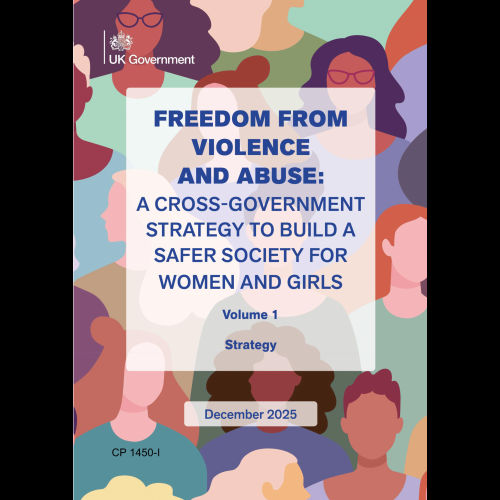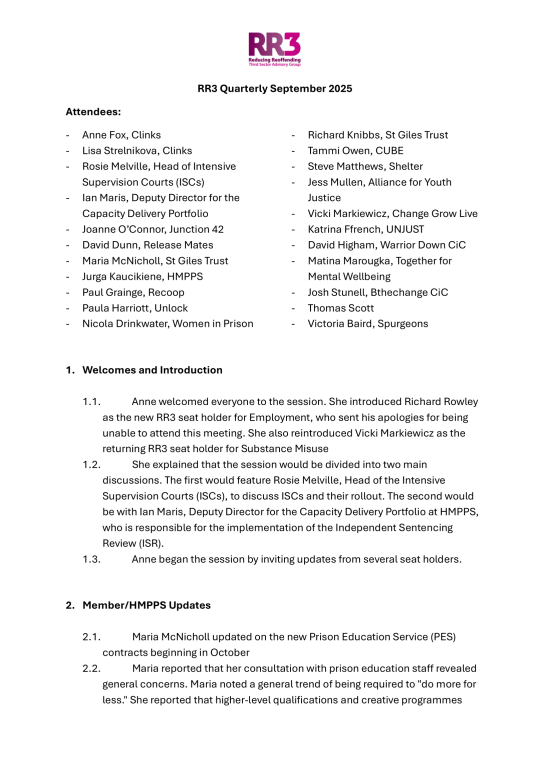Over the last 18 months, Clinks has been carrying out interviews with both women offender services in the community and statutory partners, to find out about their experience of sustaining gender specific provision in the current policy and economic climate. We have also gathered information on the changing needs of women accessing those services. This rich data has helped us develop an understanding of both the innovative practices and the challenges facing these valuable services, leading us to make a number of recommendations for change. An interim report ‘Run Ragged: The current experience of projects providing community based female offender support services’ was published in early 2014 and we now present the final report:
‘Who Cares? Where now for women offender services?’
We heard about some of the challenges: a crisis of increasing debt impacting on service users; safe and secure housing becoming a more prominent need; poor communication between service providers and commissioners, and changes in commissioning arrangements beginning to generate unhelpful local competitiveness between organisations. And still the low numbers of women offenders remains a key reason why many commissioners and providers do not engage with the gender specific agenda.
We also heard lots of great examples of innovative practice, including: satellite provision in rural areas enabling courts to increase non-custodial sentencing, the provision of formal contact points for food banks, and the use of new technologies to support geographically isolated individuals. Dedicated pathways for female offenders within Integrated Offender Management have also been created, as has a partnership with the local dental school to enable a free triage drop-in service, and the shadowing of project staff by local police force trainee officers to raise their awareness of the needs of female offenders.
The organisations we interviewed felt that the Ministry of Justice and NOMS need to strengthen their messaging about why women’s services are essential and effective. The holistic approach of these specialist projects means they can address the hidden needs of female offenders and link them into vital resources. They are showing themselves to be one of the best placed providers of support to women with complex needs.
Participants felt that there had been a slowing of strategic action since the Corston Review, so the following 5 recommendations aim to address some of these challenges:
1. Independent tracking of provision under Transforming Rehabilitation to ensure delivery of offender management recognises and is responsive to the specific needs of female offenders and that services reflect the existing evidence base for specialist gender specific services. The Offender Rehabilitation Act (2014) requires the government to consider the needs of women offenders but does not commit them to specific provision.
2. Rigorous monitoring and assessment by key government departments on the impact of funding and service cuts on women in low income and/or single parent households, to avoid perpetuating poverty related offending. This repeats a call by the Reducing Reoffending Third Sector Advisory Group.
3. A whole system approach to address the gender specific needs of female offenders, to include a joint board of high level leadership from key government bodies, voluntary sector specialists in women offending, and women offender projects as part of its permanent membership.
4. Mandatory champions for gender specific services in local and national commissioning bodies to ensure that commissioners are taking into consideration the needs of women when designing new services, and to have well informed commissioners that understand the existing evidence base for specialist gender specific provision.
5. Women offender forums to be created in each Community Rehabilitation Company area to enable a greater voice for service users and the organisations that support them, so that they can identify emerging need, shape local strategy, and inform service development.
Read more…
- Download the report: Who Cares? Where next for women offender services?
- The interim report ‘Run Ragged: The current experience of projects providing community based female offender support services’ and blog from same study.
- The Clinks website page, Women in the Criminal Justice System, includes Clinks’ briefing on the links between women’s offending and financial problems.
We’d like to hear your views, so please leave a comment below
- What’s your experience? What innovative approaches are you using to meet the needs of women offenders?
- As a voluntary organisation supporting women offenders, what changing needs have you seen for your service users?
What's new
Blogs
Violence Against Women and Girls (VAWG) Strategy Blog
Publications
Latest on X
The role is for a leader from an organisation focused on racially minoritised people, with expertise in service delivery, policy, advocacy, or related areas in criminal justice. Racial disparities are present at every CJS stage. This role ensures these voices are central in shaping policy to help address and eradicate them. Apply by Mon 18 Nov, 10am. More info: https://www.clinks.org/voluntary-community-sector/vacancies/15566 #CriminalJustice #RR3 #RacialEquity

